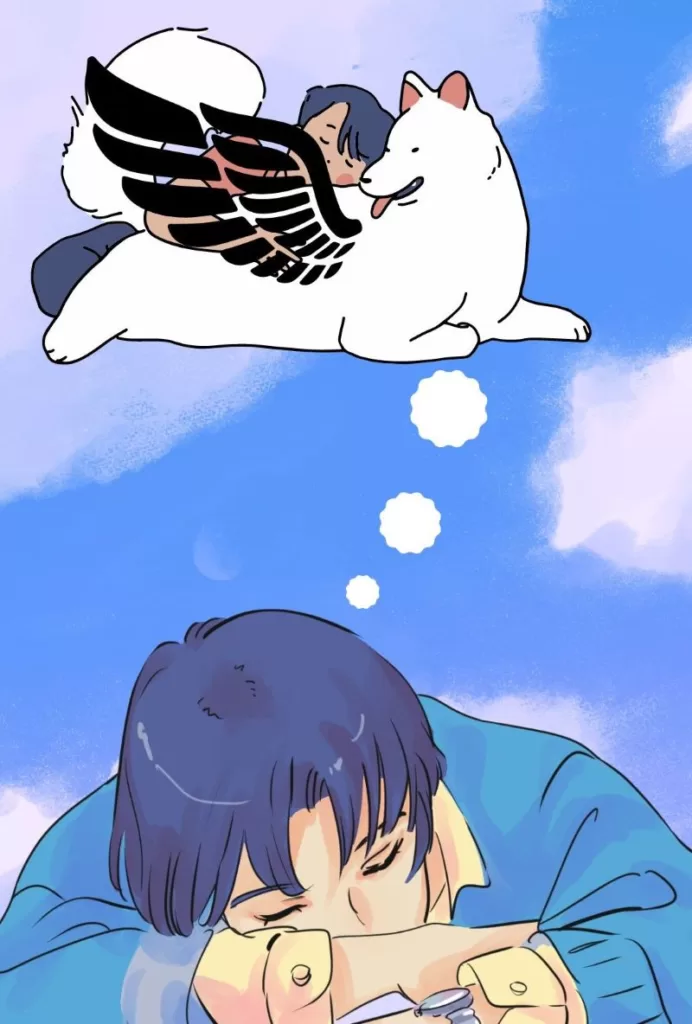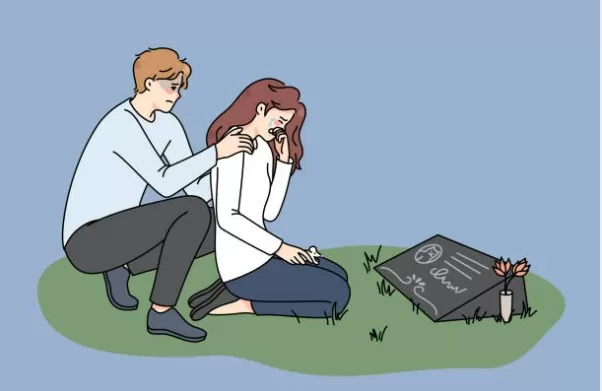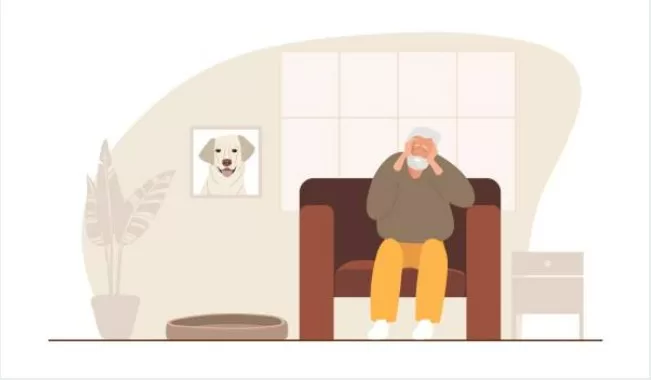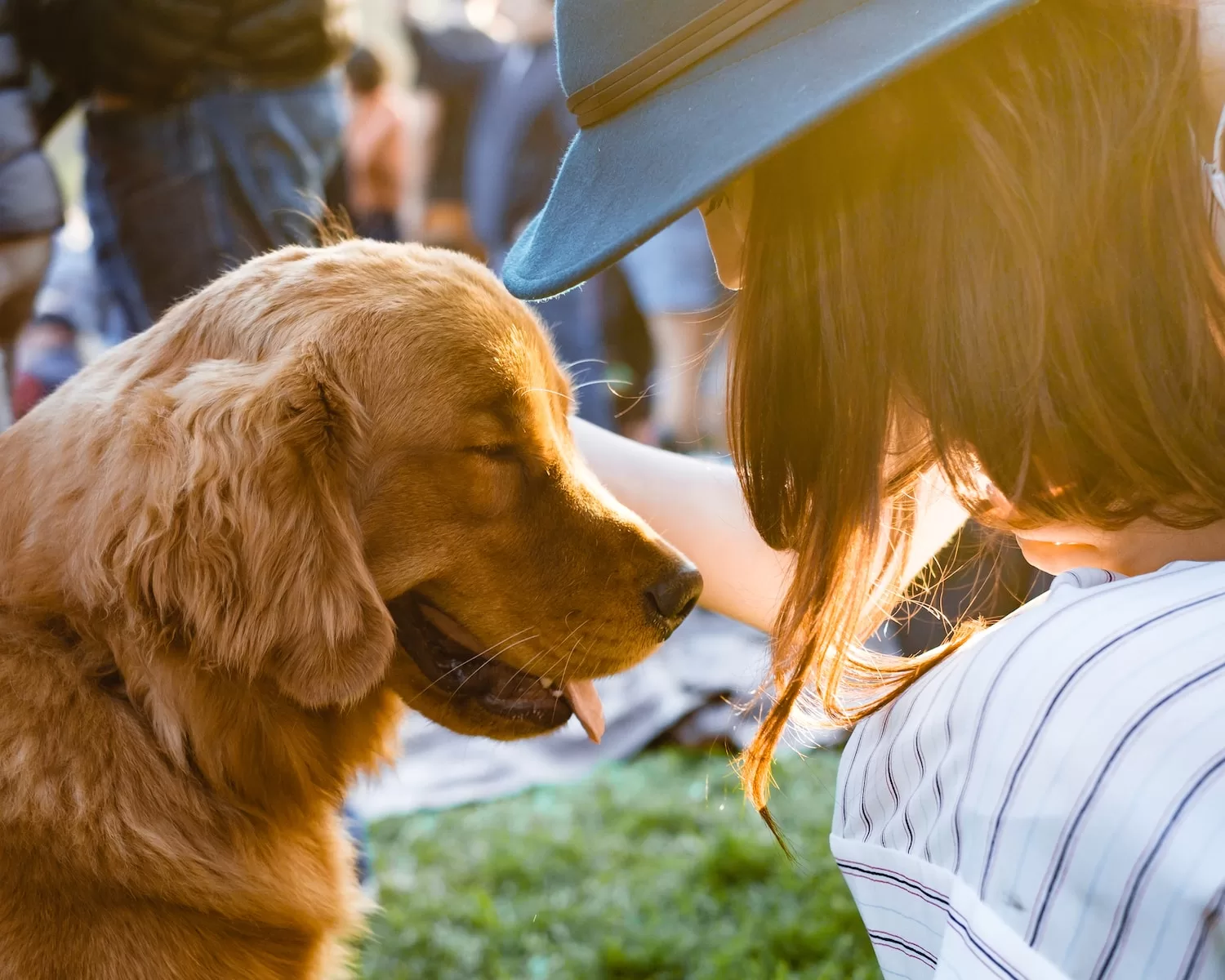The most painful part of owning a pet is to accept that one day you have to let it go, no matter how hard it is for you. I’m sure most pet parents in their lifetime with a dog; often think about how to deal with the loss of a pet. Sometimes a pet parent faces criticism from others, laughed at and mocked. I believe there is a severe lack of awareness among societies regarding the stages of grief after pet loss that a person goes through.

Being a pet parent, I have witnessed many pet owners reluctant to adopt another pet after losing their pet. I realized it is mainly due to the fear of getting hurt again or the guilt of replacing our beloved pets. Recently, celebrities like Joey King and JoJo Siwa have lost their beloved pets, Tooie and Charlie, who took to social media to express their grief and loss. All these remind us of one important thing, our pets come to us for a limited period, compels us to cope with their absence. If you are reading this article and looking for a way to cope with the loss of a dog, then you have landed at the right place.
How to deal with the loss of a pet: 5 Stages Of Grief

I have had my pet dog for the last five years, and even though it was a short period, the love and warmth she gave me could not be replaced, not even by my other pet of 9 years. The grief of pet loss comes with five stages in common, but it varies among individuals who experience distress differently.

Denial
In this first stage, after losing a pet, most of the pet parents usually experience denial of the mishap that happened in their lives. Denial comes with a shock that helps us pace ourselves, and it is also essential as it gives us the time to cope with the fact that we are not going to see, touch, or feel our pet anymore. You get hallucinations about your pet sitting at her usual spot, or “Oh! I can still get her smell around me.” is the primary sign of denial.
Also read: How to Detect Mammary Cancer in Dogs: 10 Signs.
Even running the whole scenario repeatedly on your mind could put you through a denial phase where you might think, “I could have done this or that,” or “I should not have given her this; it had caused her death.” All these are entitled to prepare you for the support you need in your grieving process by putting some emotions in your subconscious mind so you don’t get worn out or overwhelmed.

Anger
Anger is the stage where the bottled-up feelings are eventually outpoured in a massive flow due to the inability to express them in the previous step during pet loss grief. It generally vents out on anybody on the way. The passing of a pet places us in a position where we question ourselves or our destiny “Why me? Why her or him?”. The constant badgering within your mind causes irritation and outburst of emotions. The loneliness after losing a pet often causes us to get angry over the situation and our helplessness in keeping our beloved companions safe and healthy.

Bargaining
After the Denial and Anger phase, our mind would want a slow pace where the constant turmoil could be rested. In this stage, a person would start bargaining with his thoughts and the grief that has been paining his or her heart for a long. However, the bargaining in this phase involves guilt, where we contemplate within ourselves and rewind the situation repeatedly to get some answers to help ease our pain.

Depression
During the depressive phase after losing a pet, one can experience interchanges of thoughts and moods where a person could cry or feel empty inside. Most of us have experienced an emptiness at one point, which intensifies when we lose our beloved pet. This is usually considered the deeper level of grief, where the owner resides in the past moments while living the present.

However, it depends on the individual capability to deal with the loss of a dog, but in most cases, pet loss grief hits hard. The pet parent often feels disconnected from the world and their circumstances while feeling stuck in a dark room where they do not want to come out and face the world. Though depression is another grieving process that will help an individual heal from the loss.
https://www.shareasale.com/u.cfm?d=1042512&m=93902&u=3394287Acceptance
This is the final stage of grief, where a person will experience coming out of the darkness but accepting what had happened. In this phase, the person who has lost his or her pet could deal with the loss and keep them sane in dealing with their daily routine. Individuals who have seen their pet passing comes to term with the reality and tries to move on with life without their pet.
Also, Read How to Ease Halloween Anxiety in Dogs: 9 Important Considerations
7 Ways To Cope with the pet loss grief
While a person goes through the stages of grief, there are certain things or steps one can carry out to deal with the immense pain and help themselves take back to the track of life.
Expressing Emotions: While some can express their feelings after losing a pet, some cannot showcase their emotion or vent the pain. In most cases, our subconscious mind is ashamed of being judged by people who do not understand the depth of the loss of a dog. But expressing your emotion and crying loudly when you feel heavy is essential. Manifesting emotions for your beloved pet is the process of natural healing and helps you through the grieving period.
Big Lu LLCReaching out to People: After losing a pet, a person becomes lonely, no matter how busy that person is or how many people he or she meets in a day. If you cannot get that particular support from someone who understands what it means to lose a furry friend, it might take longer than expected to heal. Hence, it is crucial to reach out to those friends and family members who understand the importance of your pet and will give you moral support. Not only that, but one can also join support groups where like-minded people speed up the process.

Creating Pet Memorial: when the question occurs, ‘ How to deal with the loss of a pet?’, it is essential to ask ourselves what we would like when we had our pets with ourselves. Creating a pet memorial after the loss of a dog, like making a tree pot with the collar and name tag of your pet wrapped around it, or a painting of your pet kept in the drawing room, or getting a piece of jewelry with your pet’s name engraved would help you feel closer and connect to a petr who is not with you at present.
Self-care: it is the most common thing that pet parents indulge themselves in taking care of their pets during their ill health, and they often forget to take care of themselves after they are gone. However, prioritizing self-care is very important during the grieving phase as this would help create a bond between the mind and the body. Walking through nature or eating healthy along with daily exercise is a definite way to stress during this tough time and divert one’s mind from the grim truth.

Seeking Professional Help: Sometimes, dealing with grief causes unwarranted anxiety and depression among pet parents suffering from pet loss grief. The overwhelming feeling and inability to deal with the constant thoughts and depression could worsen the suffering. You should seek professional help or talk to a therapist or psychologist to vent your ideas and get a new perspective on life. As a result, one can get a positive outlook on life while understanding why his or her pet is not with her.
Volunteering at a shelter: Serving dogs who are less fortunate to get an owner could also help create solace within an individual suffering from grief after a pet loss. Volunteering at a pet shelter would eventually ignite a sense of empathy and make us realize how petty our pain is in front of the suffering of the voiceless. The joy and satisfaction of helping a soul in need would relieve the aching soul from losing a pet.

Adopting a pet: Pet dogs are not things we lose and replace with others. Instead, it is a lifetime responsibility. Thus, it is only suggested when someone is ready physically, mentally, and financially to adopt; one should bring a pup or a senior dog in need to their homes and heart. This would provide a clear insight into living happily while keeping all the good things of the pet that has passed away.
Closing Remarks
To conclude, I recommend taking time for yourself and feeling the grief, as this will help you realize the love and connect you with your lost pet. Following these simple steps could give you the ease that we cannot get in a chaotic life schedule. Being a pet parent, I can share my experiences; these ways have helped me tremendously reduce my pain and keep my pet’s happy memories with me.

